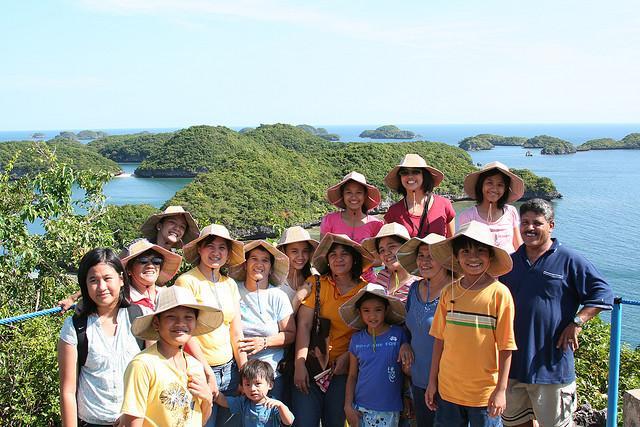
A Big Smiles - Filipino as a Family
Filipinos have special traits that are beautifully expressed through their everyday dealings with other people. They have inner peace and joy which is rare in the struggling world today. They are devout in their faith and show love to their neighbors. Aside from those, here are some of the special traits of the Filipinos:
Being Hospitable
Filipinos are one of the most hospitable people you may find anywhere. Foreign visitors in the country are treated with the utmost respect. This trait is usually seen during fiestas and holidays where many Filipinos give their best efforts just to entertain their visitors. It is also amazing to see that even the simplest home along the road opens a home for a stranger. For Filipinos, to be able to serve others gives them honor and a chance of a lifetime of friendship.
Amor Propio
Many Filipinos believe that they must live up to the accepted standards of behavior and if they fail to do so they bring shame not only upon themselves, but also upon their family. Amor propio is concern for self image. Filipinos believe that the way they present themselves to others is an important aspect to be accepted in society.
Utang na Loob
A debt of gratitude (utang na loob) is a cultural Filipino trait of repaying special favors given to them, regardless of the moral outcome. It is considered an important "accommodative surface value," along with hiya (shame) and pakikisama (togetherness). It doesn't even end with the one-time repayment of debt; most of the time, Filipinos consider this debt as something they should repay over and over, even if it takes a lifetime.
Hiya
Aside from being hospitable, Hiya is one of the many traits that Filipinos possess. Hiya has a great influence on one’s behavior for one will do everything, even if it is beyond his means just to save his reputation as well as the families. It's like the way Filipinos say sorry even if they're not at fault.
Delicadeza
Delicadeza refers to sensitivity regarding the limits of proper behavior or ethics in a situation. In simple terms, it is commonly referred to as a sense of propriety or how to behave rightly in all circumstances. It is in essence an etiquette that was passed on to us as a legacy of the Spanish culture.
Palabra de Honor
Palabra de Honoror word of honor is very important to the Filipinos. They believe that one must keep their word whenever they make a promise and it should not be broken, no matter what.
Socializing or Pakikisama
Being friendly of the Pinoy is common to all. Initial greetings to a stranger accompanied by a handshake and smile are usual to all Filipinos. Common Filipino greeting includes "Kumusta ka na?" ("How are you?"), "Anong balita?" ("What's new?"), and "Ayos ba tayo 'dyan?" ("Is everything all right?"). These prove that Filipinos are taught to show concern to others. It is our ability to get along with others to maintain good and harmonious relationships. The spirit of Pakikisama reflects that we Filipinos really value personal relations.
Being Cooperative
The virtue of helping each other and other people is also one of the identities of the Filipinos. We Filipinos love to work as a team and cherish the ancestral trait of Bayanihan and work with others for mutual benefit or for the common good. Filipinos are not individualistic and they prefer working in groups than all alone.
Politeness
Filipinos are taught to become respectful individuals. Due to the influence of Christianity, it tells us to honor both our parents and our elders. The use of "po" and "opo" when in conversation with an elder is a manifestation of how Filipinos respect their elders.
Flexibility, Adaptability, and Creativity
Filipino's sense of joy and humor is evident in their optimistic approach to life and its travails. The ability to laugh at themselves and their predicament is an important coping mechanism that contributes to emotional balance and a capacity to survive. These are manifested in the ability to adjust to often difficult circumstances and prevailing physical and social environments. Filipinos have a high tolerance for ambiguity that enables them to respond calmly to uncertainty or lack of information. Filipinos often improvise and make productive and innovative use of whatever is available. These qualities have been repeatedly demonstrated in their capacity to adapt to living in any part of the world and in their ability to accept change.










